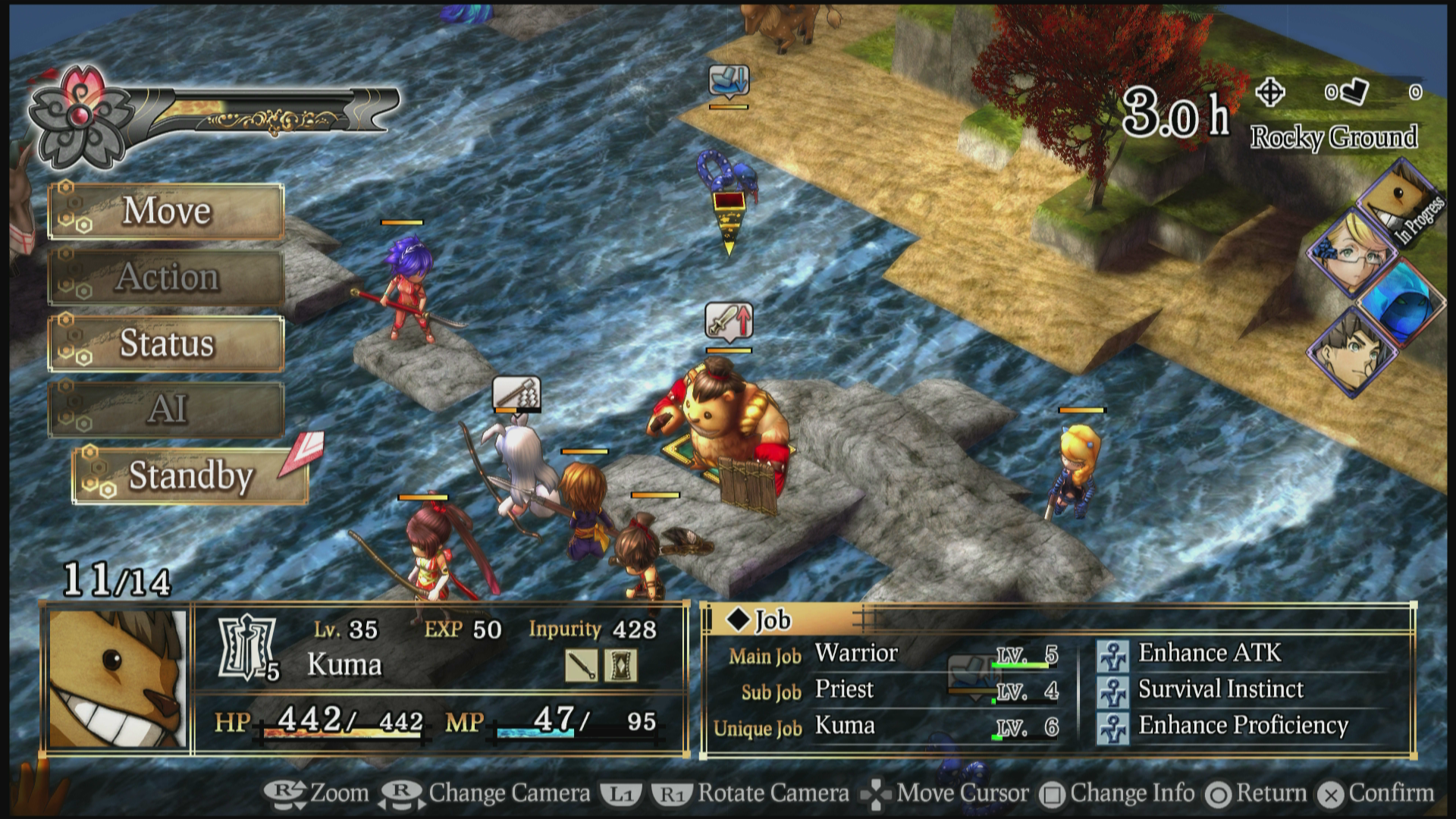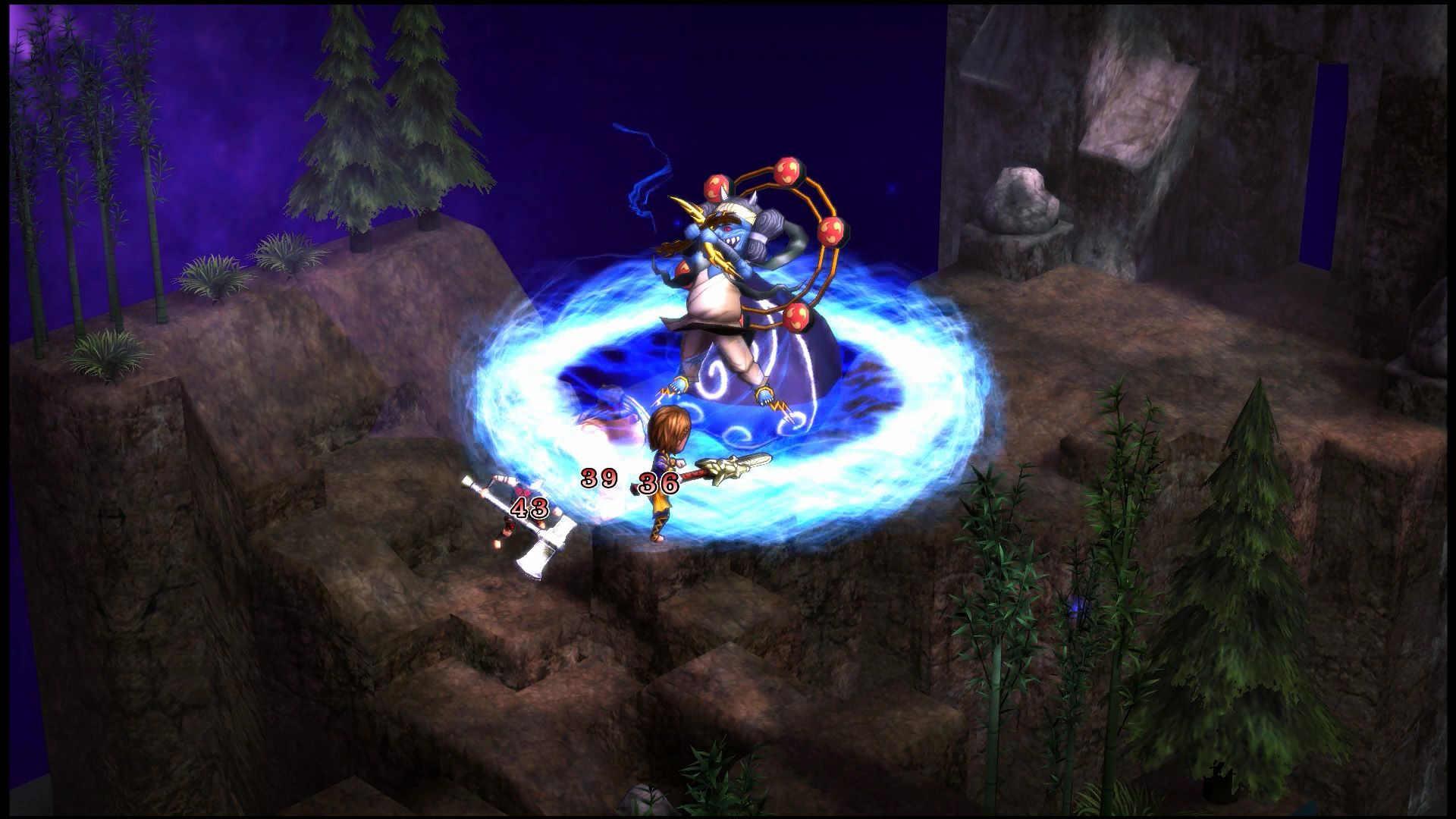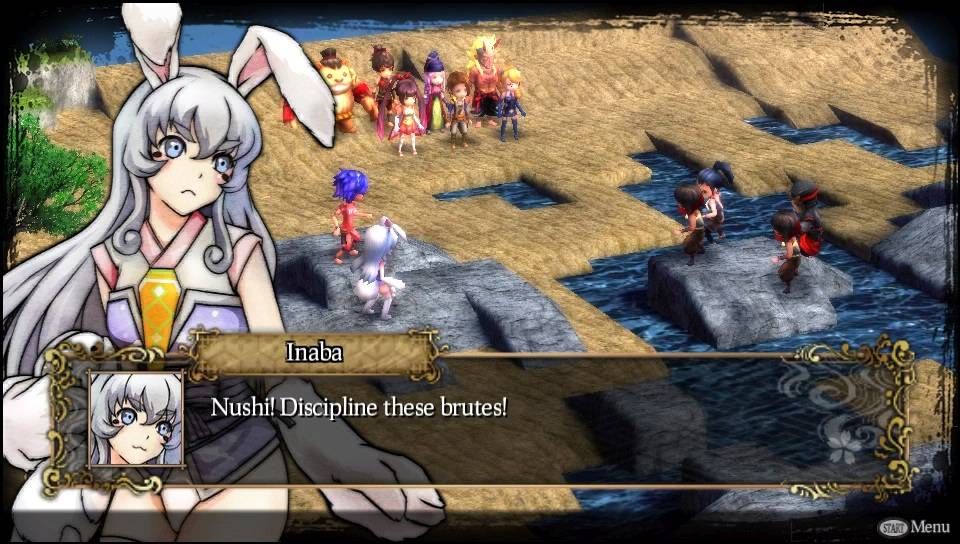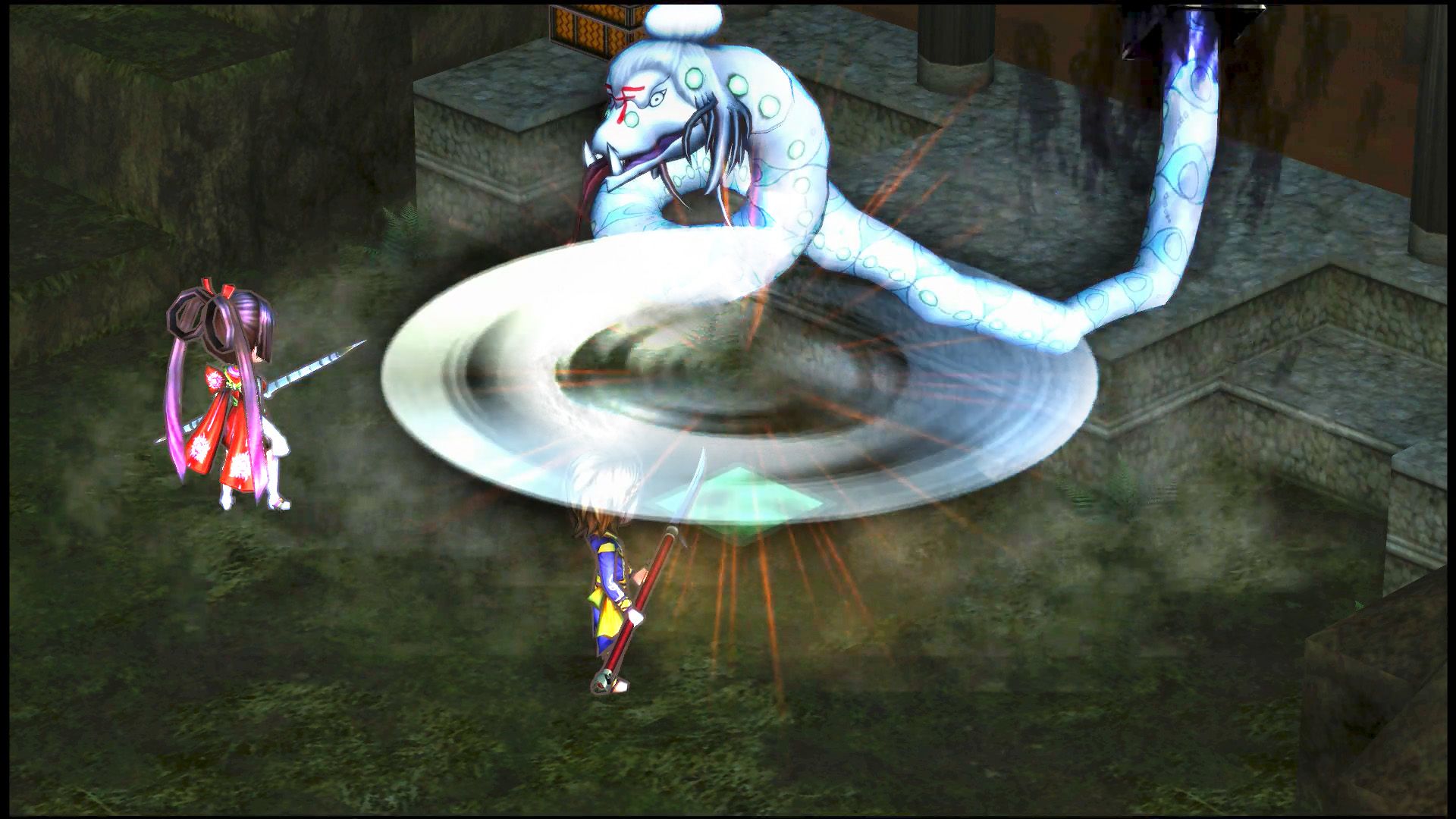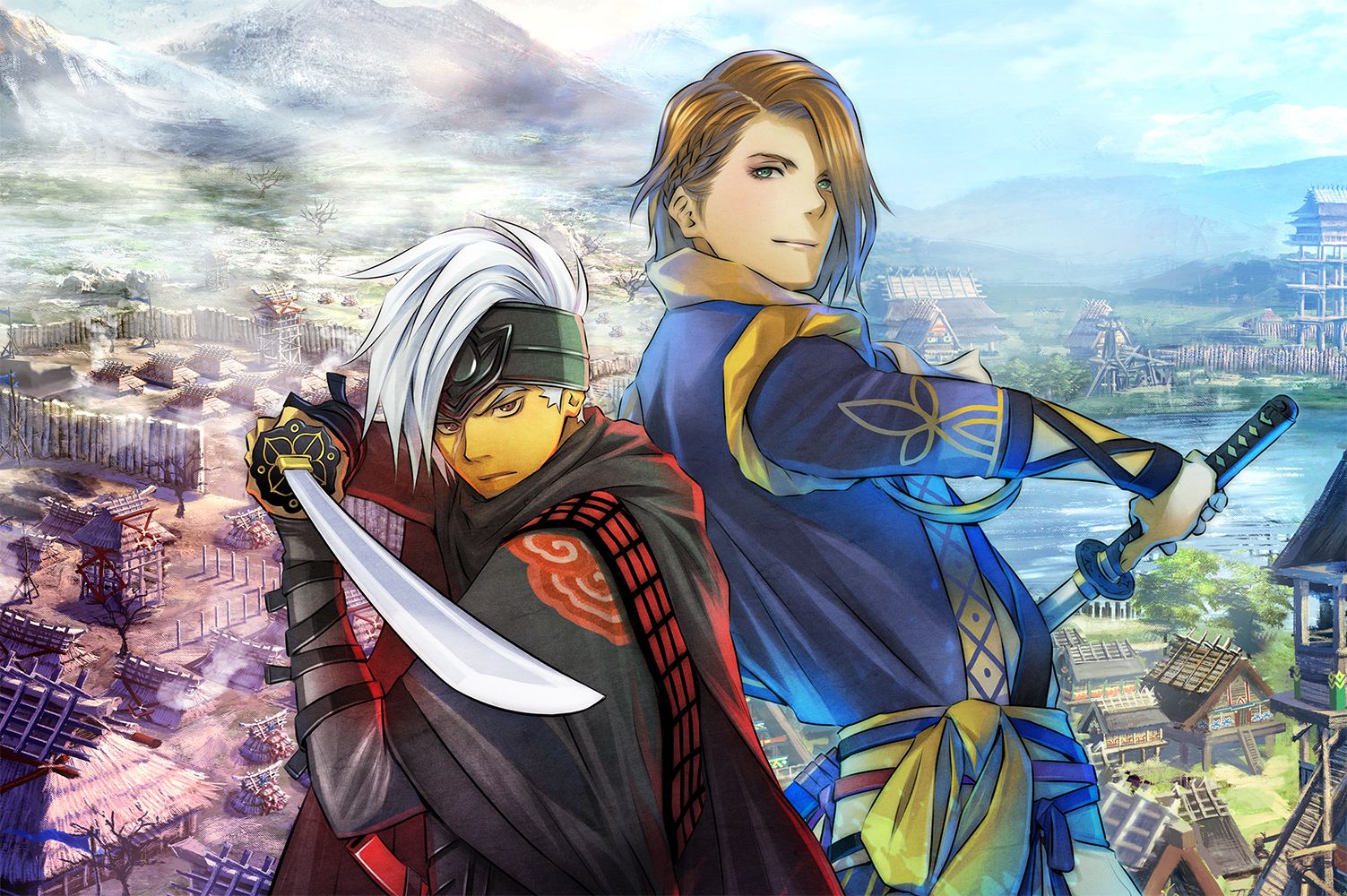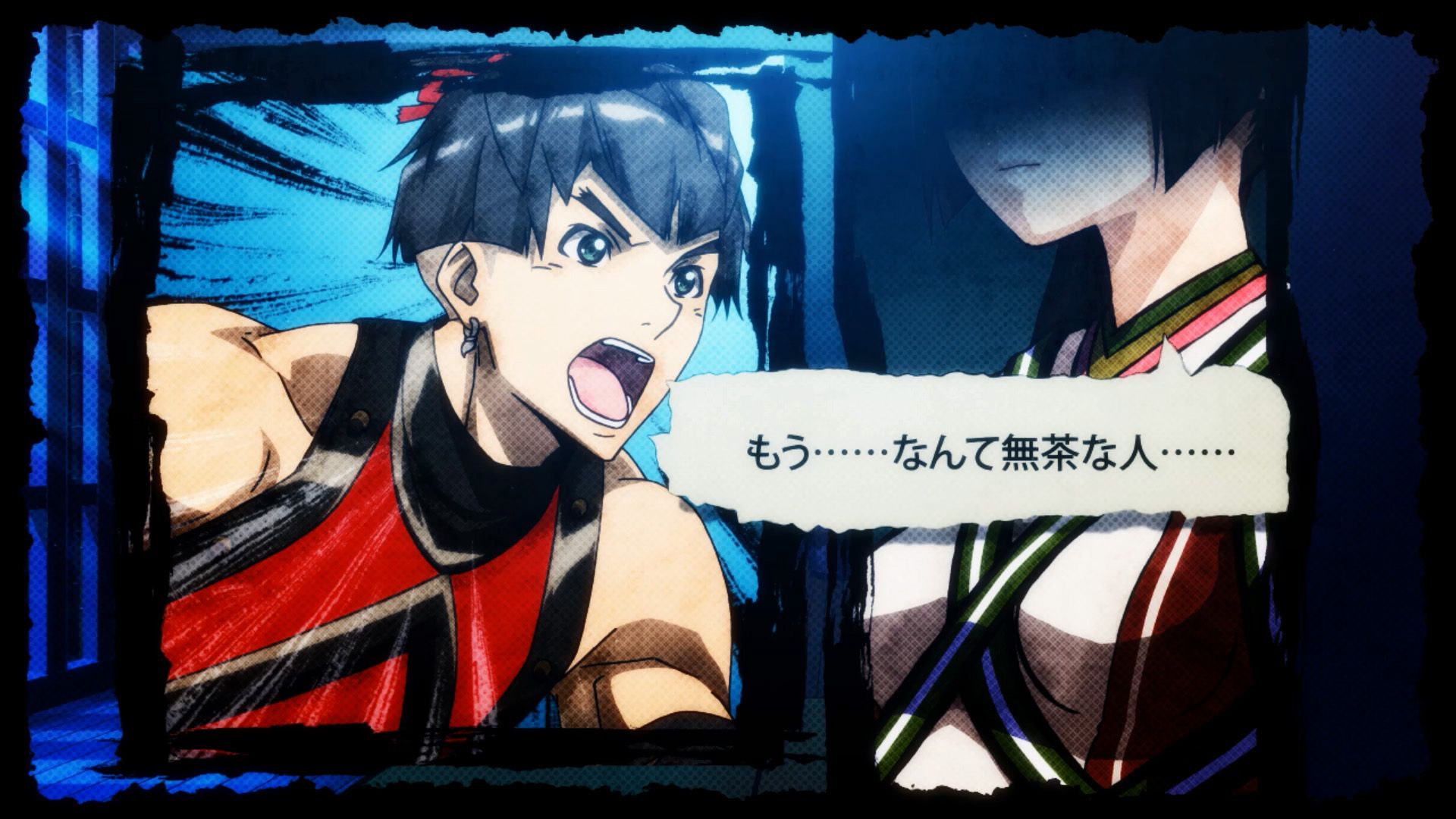Every year there are times when I just want to play a great SRPG that gives me the same feeling that I had when playing any of the genre's classics. To be in love with this genre, one needs to learn to settle for titles that contain small things that you might not enjoy. Such as in 2014, when developer Kadokawa Games released Natural Doctrine on the PS4 and PS Vita, a 3D SRPG that boasted high difficulty and knowledge of tactical gameplay. Sadly, the game didn't do so well in the west, criticized for a nonuser friendly UI and a subpar story.
With that said, Kadokawa Games is here for a second chance at the SRPG genre with God Wars: Future Past. I must admit, I was hesitant to jump into another SRPG from this developer, I vividly remember multiple rage quits while playing Natural Doctrine. Thankfully, this wont end up being the case with God Wars: Future Past because it delivered exactly what I wanted from from an SRPG, while adding subtle improvements to the genre.
God Wars: Future Past's story is based in a land called Mizuho, containing three nations: Fuji, Izumo, and Hyuga. The lands are plagued with destruction because evidently the citizens have been disrespecting natural, which angered the Gods. Facing all these hardships, the Queen of the Fuji Nation, Tsukuyomi, must sacrifice her daughter, Sakuya, atop Mount Fuji, as an offering to the Gods.
[pullquote]God Wars: Future Past because it delivered exactly what I wanted from from an SRPG, while adding subtle improvements to the genre.[/pullquote]
13 years after the offering, Tsukuyomi is missing, leaving her other daughter, Kaguya, locked up in a prison just in case the Gods need another sacrifice. In order to make sure Kaguya is safe, her childhood friend, Kintaro, sets her free and promises to help her find her missing mother.
This is when the adventure really begins, but for me the pace of the opening went a little too fast and I didn't exactly understand what I was doing once I escaped the village and appeared on the world map. However, the game has a nifty summary option in the menu. This is probably the most useful tool throughout the game, honestly I think I used it after every cutscene. It basically sums up a 5 - 10 minute conversation into a couple sentences and explains everything that happened using simple terms.
Throughout the game's campaign, the party grows to a pretty decent size of characters. Each are unique and have some reason or another for joining the adventure. More importantly, they support the story instead of just taking up space.
While these characters are fully voiced I ran into a few problems with the audio mixing. At times, the background music overpowered the voiced audio to the point where it sounded like characters were whispering. I went into the menus and played around the music and voice over volume, but I could never get it right because in battle the music would be too low to hear.
That aside, the English audio is pretty good. For fans of English dubs there are multiple voices that you'll recognize right away from some of your favorite video games and anime. Additionally, the music is incredible and sets the right mood for whatever situation the characters are in, be it battle or dialog scene.
God War's tactical battle system is where the game truly shines. Battles begin by placing your party on the map and taking turns to progress through the gridbased battlefield. When a character attacks, their position on the map will dictate any possible damage bonuses, such as, if your standing behind an enemy or getting the drop on them.
After each action, attack or healing, the character will gain experience and also something called "Impurity." As the Impurity levels of a character rises, enemies will be more likely to attack that character. There are items that can lower this, but I found it best to just try and keep low defense units behind my stronger fighters in case they are targeted.
The AI in the game is no joke. Enemies in God Wars hate you and really want you dead, this means the moment you slip up it could end up being a downward spiral to a loss.
Another example of the AI being mean is when they buff themselves up and cast a stop skill on your character, then proceed to attack you from afar, leaving you unable to counter. It's very annoying, but hey, this is war and we will all do whatever it takes to win. To make sure this didn't make me lose the battle, I usually had a backup skill ready to get me out of any tight situations.
Veterans of the genre will enjoy that length and complexity of some of the battles. Tactical movement around the map is key to victory with a huge emphasis on how the player should spend their turns. Also scattered throughout the battlefield are chests and herbs that can be collected, but waste a turn in doing so. Taking the time to get these could potentially trigger traps or get you singled out by the enemy. If the battles are taking too long, there are also options to speed them up in the menu.
Although the character's illustrations are all well done, the 3D models are something you would see in a release on PlayStation 3. They are mediocre at best and I wish they would have put a little more time into their battle appearances.
Like most tactical RPGs, God Wars has a deep job class system that is most likely it's biggest draw to fans of the genre. Playable characters can be assigned two job classes, a main job and a sub job, each character also has a unique job, but cannot be changed.
There are 18 job classes to choose from for a character's main and sub-classes. Sticking with a particular job is beneficial because the more the character gains experience with the job, the more skills they unlock through using Job Points.
This can cause a bit of grind for players who want to find the perfect combination of job classes for their party. Since only skills from an equipped job class can be used, it takes time to see which class work best.
[pullquote]God Wars: Future Past is a game that should be played by anyone who craves a great SRPG that tests your skills and knowledge of the genre.[/pullquote]
Thankfully, the character doesn't forget skills when you unequip a job, but you still can't use the skill unless you reequip it. I would have liked to be able to save a certain number of skills from each job class that I spent time developing. Job Points aren't the easiest to acquire, but at the time one doesn't play a tactical RPG without a bit of a grind.
Although the game looks a bit dated and the story can be messy at times, God Wars: Future Past is a game that should be played by anyone who craves a great SRPG that tests your skills and knowledge of the genre. Kadokawa Games seemed to take the feedback of what they did wrong with Natural Doctrine and deliver a game that fits in well with other notable SPRG titles, while adding unique systems that allow it to stand out.


